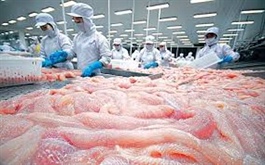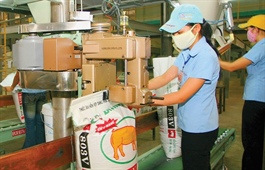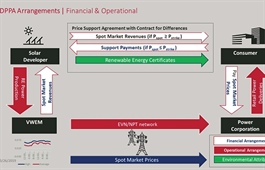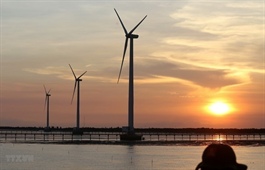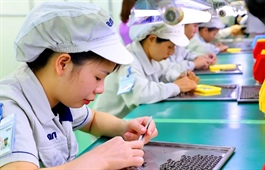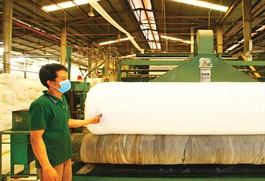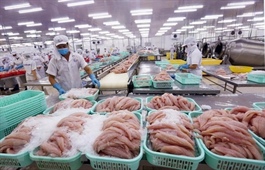FTAs key to help find new markets
FTAs key to help find new markets
Free trade agreements (FTA) play an important part in boosting trade and commerce and help the Viet Nam's goods and services find new markets, said minister of industry and trade Tran Tuan Anh in a report yesterday to an inspection committee organised by the National Assembly to overlook the implementation of FTAs that the country has signed.

According to the report, trade turnover between Viet Nam and ten members of the Comprehensive and Progressive Agreement for Trans-Pacific Partnership (CPTPP) in 2019 reached US$77.4 billion, a 3.9 per cent increase from 2018.
The country exported $39.5 billion in goods and services to the rest of the trade bloc, a 7.2 per cent increase year-by-year, and imported $37.9 billion, a 0.7 per cent increase.
Anh, however, highlighted a number of challenges and issues that must be addressed before the country could realise the FTAs full potential. For example, the trade minister said a large number of Vietnamese agricultural firms were still trying to push for greater volume at the expense of quality, which not only hurt their ability to compete but also put themselves at risk of failing to meet countries' standards for imported products.
Notably, over 80 per cent of Vietnamese exported was in raw materials, which fetched significantly lower value on the market compared against similar products from competitors. To make matter worse, the country's convoluted legal framework and policies on trade have not caught up with demand set by modern FTAs, especially on the local government level.
In addition, trade partners including China, India and a number of ASEAN economies also produce goods and services that were similar or in some instances, direct-competition with Vietnamese products.
NA deputy and a member of the NA's Economic Committee Tran Hoang Ngan said there were still markets with a lot of untapped potentials that Vietnamese firms could exploit. For example, Viet Nam's total export to India, a market with 1.3 billion consumers, last year only amounted to $6.6 billion.
Ngan urged government trade agencies to take a more focused approach in supporting Vietnamese firms, which not only limited to disseminating information but to include preferential policies and trade advantages.
NA deputy chairwomen Tong Thi Phong said joining FTAs such as the CPTTP and the EU–Vietnam Free Trade Agreement (EVFTA) marked an important milestone for Viet Nam's effort in global integration and national development.
"Central government agencies, ministries and local government must step up effort in disseminating information and the promotion of FTAs among the business community. Special attention must be paid to non-tariff barriers and to goods and services that are Viet Nam's specialities," she said.
Phong said government trade agencies must work closely with the Ministry of Industry and Trade as well as with domestic firms to implement and take advantage of numerous FTAs that Viet Nam has signed.
The Vietnam Chamber of Commerce and Industry, in a conference held yesterday in Ha Noi, introduced an EVFTA handbook for businesses, which highlighted the most important rules and preparations of the trade deal that Vietnamese firms must study before attempting to conduct business in the EU.







